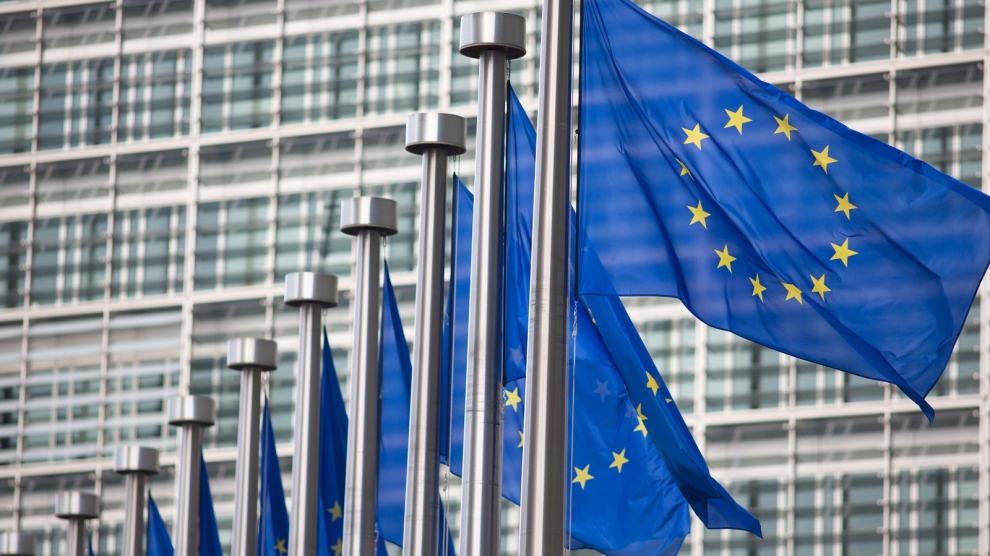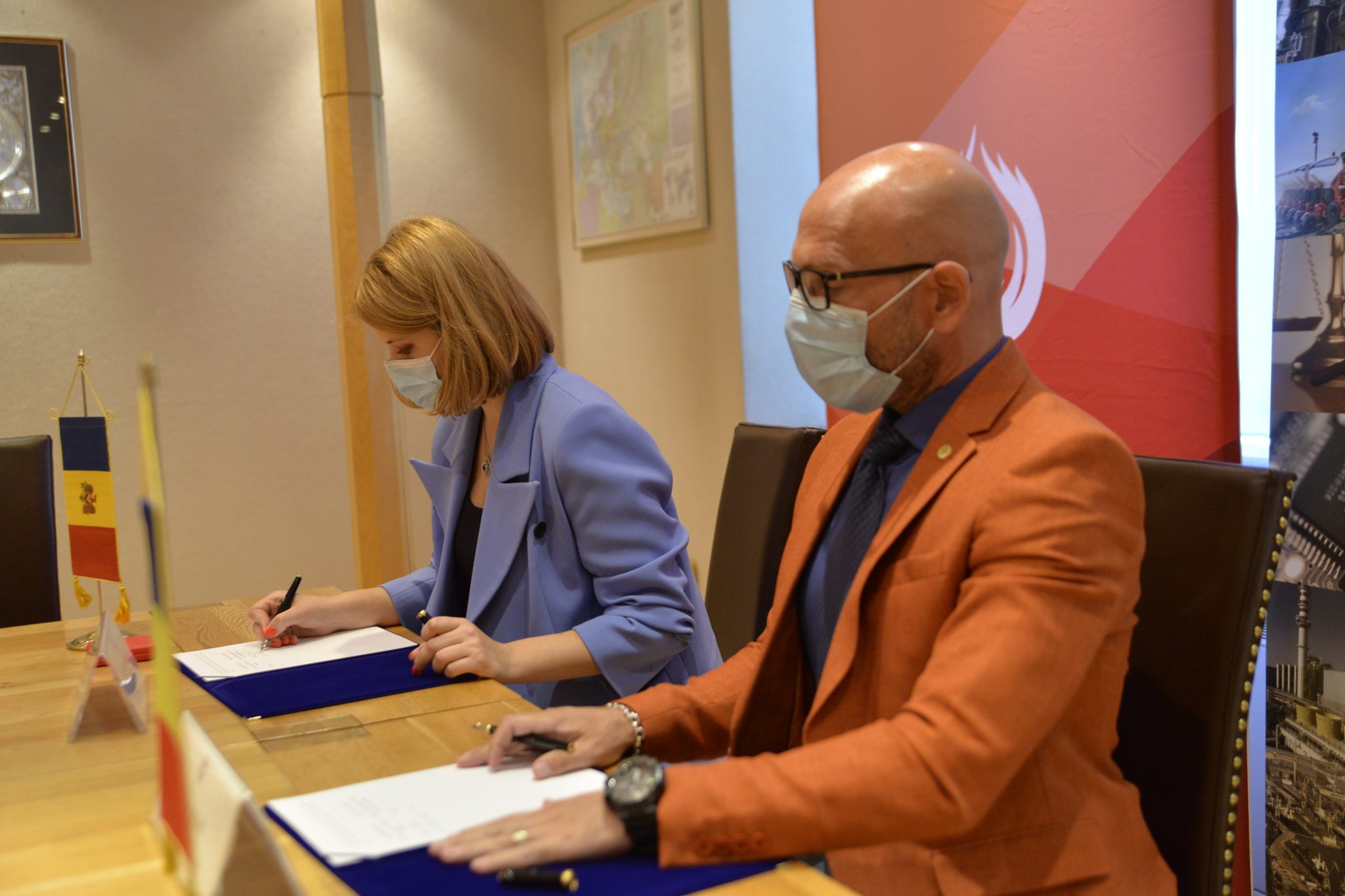Economy
Euro hits crisis stage
Reading Time: 3 minutesStorm clouds have been brewing over Europe and not even the biggest and most prudent economies are exempt from their threat.
Storm clouds have been brewing over Europe and not even the biggest and most prudent economies are exempt from their threat. Europe’s decade-old currency, the euro, is in crisis with some eurozone members mired in massive debt and others having to provide bailout-loan guarantees to prevent default and shore up the common currency.
Europe’s economic giant, Germany, has put up a large share of those guarantees. Many Germans, however, are not happy about having to bail out what they consider Europe’s big spenders, such as Greece. Some are even questioning whether the euro can survive in the long-term.
Germany has introduced the country’s most ambitious austerity plan since World War II, to bring its public debt within European Union limits and hopefully encourage others to follow suit, thereby stabilizing the euro.
The austerity plan has calmed markets down, says Artur Fischer, head of the Berlin Stock Exchange.
"The normal retail investor, he understands and realizes that serious measures have been taken," says Fischer. "The professional investors, they understand that what happened right now is significant and going in the right direction."
The markets had been jittery for months about the stability of the euro. The crisis was triggered by the Greek government’s inability to pay back loans. Fears spread about a possible default that could drag the entire eurozone with it. Germany agreed to a bailout package of loan guarantees, but in return, Greece had to implement strict austerity measures. Those have not been popular on the streets. The bailout was not popular in Germany either, where many felt they were being called on to help those who had simply spent beyond their means.
Fischer says that Germans need to understand why the bailout is important for the German economy.
"Let’s just say we let Greece go into bankruptcy – well, their loan is in euros so going into bankruptcy the ones who are lending them the money they would have to take a cut [loss]," says Fischer. "Who lent that money? Well to some extent, quite a lot of German banks. So, if Greece would have gone into default, as a consequence a number of banks in Europe, and in Germany especially, would have another big problem."
Since then Europe’s big economic players and the International Monetary Fund have hammered out an additional loan guarantee plan worth around a trillion dollars to shore up other fragile European economies.
It has Michael Stuermer worried. He is a historian and chief political correspondent for the influential German newspaper, Die Welt. He has doubts about the long-term viability of the euro and sees a break-up as quite possible.
"Some of the more solid partners in the euro system led by Germany would turn around and say, ‘Look we’ve had enough of that’. In order to save you, we first have to save ourselves. We suspend our membership and we go back or we go forward to a kind of north European franc or guilder or something which sounds good and solid. And, of course the southern part of the euro would fall apart," says Stuermer.
Many analysts have pointed to structural flaws in the euro, noting that countries in the eurozone may share the currency, but have little say over individual member budgets and spending.
Economic analyst Markus Kerber of Berlin’s Technische University says the eurozone must be restructured.
"In the current form, the eurozone can not survive," says Kerber. "We have to reshape it. In the long run, in my opinion, unless there is a miracle, Greece cannot belong to the European Monetary Union because we cannot provide for the financial means to keep that country stable."
Kerber believes the German bailout plan is unconstitutional and violates the EU treaty, and he’s bringing suit against the German government over it.
Not everyone sees such cracks within the euro and the European Union. Fischer has no doubt, the euro will survive.
"What we experience now was predicted when the eurozone and the euro were put together because we all understood that we have economies with different kinds of speeds, different kind of abilities. Now, today we’re in a world where a few countries are very strong and others are weak. So, we reach out and we try to help them. There will be a point in time where that might the other way around," says Fischer.
So while the euro is under severe strain – and some see its demise – others believe the common currency along with Europe’s political bonds have benefited too many to be discarded.
Economy
Moldova will receive a disbursement of 36 million euros as part of the the Economic Recovery Plan

This week, the European Commission approved the disbursement of 36 million euros in grant money for the Republic of Moldova. The announcement was made by Deputy Director-General for Neighbourhood Policy and Enlargement Negotiations at the European Commission, Katarina Mathernova, who paid an official visit to the Republic of Moldova between September 13-15, together with Managing Director for Russia, Eastern Partnership, Central Asia, Regional cooperation and OSCE, at the European External Action Service, Michael Siebert.
The EU officials had meetings with President Maia Sandu, Minister of Foreign Affairs and European Integration, Nicu Popescu, Speaker of Parliament, Igor Grosu, Prime Minister of the country, Natalia Gavrilita, as well as key representatives of Government, international financial institutions and the civil society, according to a press release issued by the Delegation of the European Union to the Republic of Moldova.
Beside such topics as the EU-Moldova relations and prospects, the priorities of the reform agenda of the new Moldovan Government, preparations for the Eastern Partnership Summit at the end of the year and the Transnistrian conflict settlement, the officials also discussed the EU assistance in support of reforms and the Economic Recovery Plan for Moldova, which was announced in June with a total EU support of 600 million euros over the next 3 years.
“The first measures under the Economic Recovery Plan will shortly materialize, with the expected disbursement of 36 million euros in grant money under budget support programmes to support the authorities’ efforts to fight against the consequences of the pandemic. Moldova can count on EU’s assistance on its path to reforms and to recovery, bringing tangible results to citizens,” Katarina Mathernova stated.
The plan is based on assistance provided by the European Union through various bilateral and regional instruments, aiming to mobilize the funds in the form of grants, loans, guarantees and macro-financial assistance.
“The Economic Recovery Plan for the Republic of Moldova involves much more, not just this financial support provided immediately. It must help digital transformation, strengthen infrastructure, energy efficiency, education and support small and medium-sized enterprises,” the EU official also said.
As Prime Minister Natalia Gavrilita informed, “The Economic Recovery Plan and the 5 flagship initiatives for Moldova in the Eastern Partnership will directly contribute to the reform and consolidation of institutions, stimulate long-term socio-economic development, bring direct benefits to citizens, and unleash new economic opportunities through promoting the green agenda and digitization. Small and medium-sized enterprises (SMEs) have been hit hard by the crisis. Promoting and diversifying access to finance and reducing collateral requirements will be essential in supporting economic operators. We are grateful to the EU partners who will launch two programs to support 50 000 independent Moldovan SMEs to adapt to the new conditions.”
President of the Republic of Moldova, Maia Sandu, welcomed the decision of the European Union to disburse about 745 million lei in grant money, as the official page of the President’s Office announced. “EU support comes after a long period of freezing of European assistance, caused by former governments. We managed to relaunch the political dialogue with the European Union and resume financial assistance. The Republic of Moldova is gradually regaining the trust of its strategic partners. This European support is also a signal of encouragement for the new Government team in its commitment to clean up the institutions, fight corruption and launch development programs in the country,” said Maia Sandu.
Photo: unknown
Economy
Romania and Moldova signed a partnership memorandum pledging to cooperate in promoting their wines

The Chamber of Commerce and Industry of Romania (CCIR) and the National Office for Vine and Wine (NOVW) of the Republic of Moldova signed, last week, a memorandum of cooperation on organizing joint promotional activities in the markets of common interest, as the CCIR announced.
China, Japan or the USA are just some of the markets targeted by the Romanian and Moldovan institutions. The memorandum also involves advertising activities for wines from common indigenous varieties, promoting the oeno-tourist region, developing a tourist route in the two states, exchange of experience, study visits, and mutual support in identifying new export opportunities. “We are very confident that this collaboration between our organizations will lead to sustainable economic growth and a higher degree of well-being among Moldovans and Romanians,” claimed Deputy Secretary-General of CCIR, Bogdan Visan.
On the other hand, Director of the NOVW, Cristina Frolov, declared that no open competition with Romania is aimed at the governmental level of the Republic of Moldova. “This request for collaboration is a consequence of the partnership principle. Romania imports 10-12% of the wine it consumes, and we want to take more from this import quota. Every year, the Romanian market grows by approximately 2.8%, as it happened in 2020, and we are interested in taking a maximum share of this percentage of imported wines without entering into direct competition with the Romanian producer,” the Moldovan official said. She also mentioned that Moldova aims at increasing the market share of wine production by at least 50% compared to 2020, and the number of producers present on the Romanian market – by at least 40%.

Source: ccir.ro
**
According to the data of the Romanian National Trade Register Office, the total value of Romania-Moldova trade was 1.7 billion euros at the end of last year and over 805 million euros at the end of May 2021. In July 2021, there were 6 522 companies from the Republic of Moldova in Romania, with a total capital value of 45.9 million euros.
The data of Moldova’s National Office of Vine and Wine showed that, in the first 7 months of 2021, the total quantity of bottled wine was about 27 million litres (registering an increase of 10% as compared to the same period last year), with a value of more than one billion lei, which is 32% more than the same period last year. Moldovan wines were awarded 956 medals at 32 international competitions in 2020.
Photo: ccir.ro
Economy
Moldova’s hope to be a top walnut exporter and its main difficulties

The Republic of Moldova has perfect weather conditions for growing walnut trees, that creating a great potential of walnut production and trade, especially on international markets, where the demand is way higher than the product’s supply. National and international experts believe that the country’s walnut production industry is on the verge of important transformations, which could lead to increased yields, quality and competitiveness worldwide.
According to authorities, Moldova exports 34-35 thousand tons of walnuts in shell, which is about 7% of the total export of fruit and 5% of the total export of horticultural products. The export value is assessed as being $120 million, that being 57-60% of the total fruit export value and about 50% of horticultural export value. Most of walnut crops are exported to the EU countries, such as France, Germany, the Netherlands, Romania and Austria. The country’s exports were among the world’s top 10 when it comes to the highest dollar value of the product during 2020.
Viorel Gherciu, Minister of Agriculture and Food Industry, pointed out that the production in the domestic walnut industry has increased by 55% in the last five years, which ranks Moldova among the main producers in the world.
“The biggest opportunity for this industry is that we are in the geographical proximity of the largest walnut import area in the world, which is the European Union, with almost 40% of total imports in the world. We are on the EU border, with privileged relations, with an Association Agreement. We already enjoy a good relationship in working with European importers, they trust our processors. A very close collaboration has been created and this is, in fact, the guarantee for those who invest in the area,” claimed the president of the Walnut Producers Association, Oleg Tirsina.
The data provided by the National Bureau of Statistics show that there are 34.7 thousand hectares of walnut plantations in the country. 20.90 hectares are represented by orchards. 75% of planted orchards are formed of old varieties trees. 30-35% of the exported production comes from orchards, the rest comes from individual farmers and plantations along the roads. This means that the quality of walnut production is not at its maximum potential. Developing commercial plantations through orchards modernization and extension of walnut varieties would provide double yield and better quality, experts say.
Governmental support in the form of subsidizing solutions, foreign investments and credit options are indispensable for the industry development. One of the financing options is the credit line of the European Investment Bank Project. Since 2016, 15 producers and processors of nuts, almonds and hazelnuts have benefited from these loans with the total amount of investments worth 8.7 million euros. A further extension of the project would provide another 60 million euros for the modernization of the horticultural sector in general and for harvesting organic walnuts in particular.
Photo: heymoldova.com





















